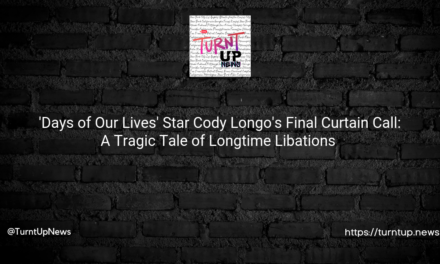🔥 Turnt Up News 🔥
💥 Lawsuit Shakeup: Tennessee Teachers Take on Board of Education Over ‘Prohibited Concepts’ Law 💥
TL;DR:
Five passionate public school teachers, backed by the Tennessee Education Association (TEA), have launched a legal battle against the Tennessee Commissioner of Education and the State Board of Education. The lawsuit challenges the constitutionality of Public Chapter 493, also known as the “prohibited concepts” law. This contentious legislation dictates what can and cannot be taught in classrooms concerning race and gender in public schools. The teachers argue that the law hampers their ability to provide a comprehensive education and puts them in an impossible position. Now, the courtroom is the battleground for this fiery dispute that could shape the future of education in Tennessee.
📚 The Full Story 📚
In a bold move that echoes the rebellious spirit of the younger generation, five public school teachers in Tennessee are standing up against the powers that be. Joined by the Tennessee Education Association (TEA), they have filed a lawsuit that packs a punch, aimed at challenging the very foundations of the “prohibited concepts” law.
What is this “prohibited concepts” law, you ask? Well, it’s a piece of legislation that has ignited heated debates across the state. The law aims to control what is taught in classrooms, particularly concerning sensitive subjects like race and gender. On the surface, it sounds like a way to ensure a balanced and respectful educational environment. But as we delve deeper, we uncover the controversy lurking within.
The law draws a line in the sand, strictly prohibiting certain concepts from being discussed or taught. These forbidden topics include asserting that one race or sex is superior to another, holding individuals responsible for actions of people from the same race or sex in the past, causing emotional distress based solely on race or sex, and claiming that the state or the United States is fundamentally racist or sexist.
Now, on the face of it, these prohibitions might seem well-intentioned, but scratch beneath the surface, and things get murkier. The Tennessee educators argue that while they want to foster inclusive and fact-based education, this law creates confusion and obstacles for them in the classroom. It’s like trying to dance to a catchy tune, but the steps keep changing, leaving them stumbling over a hotbed of ambiguity.
Educators are perplexed and grappling with questions like: How can we teach history honestly and openly without stepping on the toes of this law? How do we approach the legacy of racism and sexism without making students uncomfortable? These are complex questions that deserve real answers, not vague restrictions.
Tanya T. Coats, President of the Tennessee Education Association, stands at the forefront of this legal brawl. She argues that educators are working tirelessly to meet state standards and provide quality instruction. But the language of the law leaves them second-guessing themselves and stifles meaningful conversations on crucial subjects.
So, what’s at stake here? It’s not just about an abstract legal battle; it’s about the future of education in Tennessee. If this law remains unchallenged, students might miss out on a well-rounded education that prepares them to face the world as critically thinking, empathetic citizens.
But as we watch this courtroom drama unfold, we must ask ourselves: Should laws dictate what we can and cannot learn? Is it possible to foster an inclusive and respectful educational environment without stifling important discussions? Can we find a middle ground that respects history while inspiring progress?
As we wait for the gavel to fall and the verdict to be delivered, one thing is clear: The battle for education has just begun.
❓ What are your thoughts on the “prohibited concepts” law? Should educators be given more flexibility in the classroom? Let’s get talking! ❓
[Original News Story URL: https://www.wkrn.com/news/tennessee-news/tennessee-teachers-file-lawsuit-against-board-of-education-challenging-prohibited-concepts-law/]





